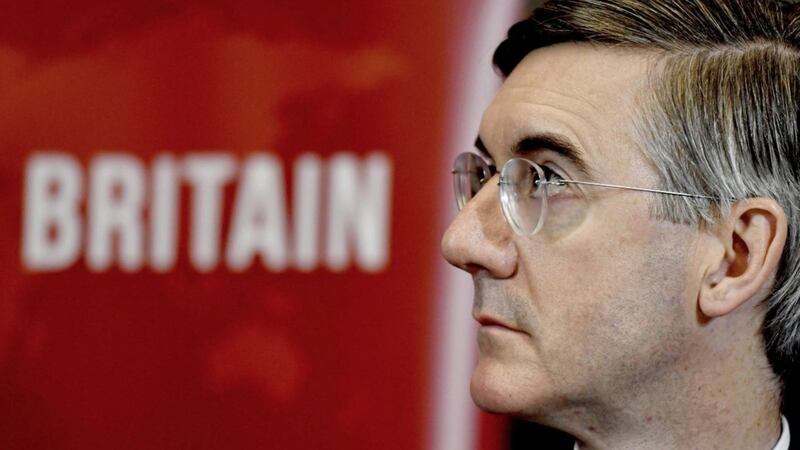There are few things in life more embarrassing than finding yourself on the same side of an argument as Jacob Rees-Mogg.
You will remember that Jacob is an antiquated arch-Tory whose politics date from the time of Queen Victoria, although his views are generally well to the right of what hers were.
But recently he was correct about one thing. He said he disagreed with the former Secretary of State Peter Brooke’s statement in 1990, that “Britain has no selfish strategic or economic interest in Northern Ireland.” Not for the first time, Rees-Mogg outraged nationalists, with the SDLP accusing him of “provocatively undermining” the peace process.
So has Britain a strategic interest in the north, how can we tell and, whatever the answer, will it have any impact on a possible border poll?
Since Peter Brooke’s 1990 statement, Britain has been involved in wars in eight countries, and has supplied military equipment to at least 15 others. Its old empire no longer exists, but Britain’s imperial ambitions have not gone away you know, as emphasised this week by Boris Johnson’s new British foreign and defence policy.
His “Global Britain in a Competitive World” reflects Britain’s 2015 Strategic Review, which emphasised protecting its global influence, because “what happens overseas directly affects us at home”.
If Britain has strategic interests thousands of miles overseas, it would be odd if it did not have a similar interest in this country which, in Johnson’s mind at least, could be reached by a bridge.
So where does that leave Peter Brooke’s statement? The answer is that his carefully worded announcement was all about timing. By 1990 Britain knew that the IRA leadership needed a gesture to convince its rank and file to abandon the armed struggle. By declaring that it had no strategic interest in the north, Britain was offering the IRA an exit from the war.
But what Brooke did not say was even more important. Unlike the IRA, he knew that Britain no longer needed a physical presence to maintain its power and influence here.
This was illustrated by Jacob Rees-Mogg himself, when in 2018, Somerset Capital, a UK investment firm in which he then had a shareholding, established a Dublin office because of Brexit. Britain did not need troops in Dublin to allow British capital to operate in the city.
The old British Empire used flags and force in its colonies. Its modern empire leaves arguments about flags to the natives and employs international capitalism to its own advantage in activities such as finance, trade, investment, economic exploitation, science and technology.
To achieve this, Britain encourages political stability in areas in which it has an interest. It promotes political systems which are no threat to it (like the executive) and to which big business can have easy access (which Moy Park had to Stormont officials, as indicated in the RHI Report).
So Brooke meant Britain had no strategic interest in propping up an unstable, one-party unionist system, provided a stable alternative could be arranged, which would not threaten Britain’s strategy of keeping the north politically quiet and big business compliant. This explains MI5’s intelligence base in Holywood and Johnson’s visit last week to head off a possible threat from loyalist paramilitaries.
Thus Britain’s reluctance to hold a border poll is not about the result, because whatever the outcome, Britain’s imperial interests in Ireland will remain unchallenged. Its main concern is the poll’s risk to political stability, which might threaten British economic interests.
Despite that, nationalists argue passionately that Britain has no strategic interest here. But Britain’s global ambitions clearly indicate that it has strategic interests across the world. To claim that Ireland is somehow exempt sounds rather fanciful.
The British government and their friends in the City have a strategic interest in the north (and the south) but they do not have to deny that interest. In Ireland, the Irish do it for them. Now, that’s what you call a successful British strategy.









